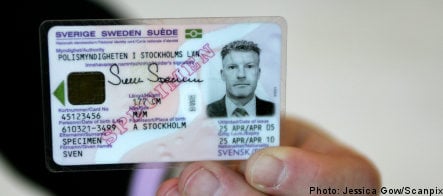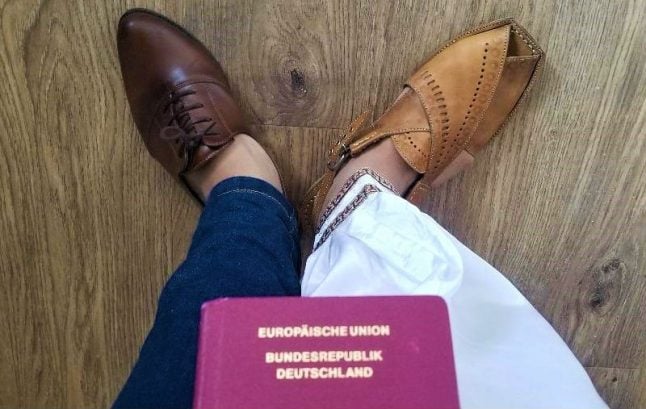“Our goal is to have a secure card available for people registered as living in Sweden by June 1st,” the Tax Agency’s Anna-Lena Österborg told The Local.
In September, the government announced that the Tax Agency would assume responsibility for issuing Swedish ID cards, and since early October Österborg has been leading the agency’s efforts to implement the new mandate.
“It entails creating a whole new infrastructure,” she said.
“There’s not one single challenge we need to overcome. Rather, it’s about taking on an important and exciting new assignment.”
When pressed for specifics about the new cards, which would be issued to non-Swedes with a personal identity number (personnummer), Österborg had little to offer regarding practical details.
“It’s still early in the process for us,” she said.
“We’re talking to the banks and negotiating with suppliers. At this stage, many of the practical decisions have yet to be taken.”
Österborg empathized with the plight of immigrants and foreigners living in Sweden in their quest to acquire a Swedish identity card, but emphasized that her agency won’t be issuing cards before June.
Until then, non-Swedes must instead continue to try their luck at Sweden’s major banks, currently the only outlet available for them to acquire a Swedish ID card.
But banks’ lack of a uniform policy regarding who exactly is eligible to receive a bank-issued identity card remains a major irritant to foreigners living in Sweden.
“It seems as if we’re just being ignored by the authorities,” said Naresh Shenoy, an Indian national who has been living and working in Sweden for the past year.
Shenoy tried unsuccessfully to acquire an ID card through Swedbank and was disappointed to learn that he’d have to wait until June for the chance to get a card from the Tax Agency.
“I’m really surprised because Sweden is generally an advanced country, so I can’t understand why it would take so long to deal with this flaw in the system,” he said.
While she couldn’t say for sure whether or not the agency would meet the agreed upon June 1st deadline, Österborg was optimistic.
However, she emphasized repeatedly that assuming responsibility for issuing ID cards represents an entirely new activity for the agency.
“It involves settling on the technical and security specifications, training our staff, and pursuing a dialogue with other agencies and organizations involved,” she said.
“What’s important is making sure the card is secure so that staff at banks and other agencies will be confident in the identity of those who present the cards.”
The autumn budget bill included a one-time infusion of 21 million kronor to help Skatteverket develop the capability to issue ID cards, as well as an additional 10 million kronor annually to fund the new mandate in the future.
In a response issued back in March 2008 to a government consultation on the ID card issue, the tax agency said it would need 65 million kronor a year if it were to take over the issuing of Swedish identity cards to immigrants.
At the time, the agency said it would make more sense for the police, which issue identity cards to Swedish citizens, to provide non-Swedes with ID cards as well.
Österborg said it was too early to know whether or not the planned appropriation would be sufficient, noting that the Tax Agency hasn’t even completed negotiations with a card supplier and thus can’t estimate the ultimate costs of the new programme.
“At this point we plan to adhere to the current level of funding,” she said.
She added that that as the June 1st date approaches, the Tax Agency plans to issue information about the new ID cards in several other languages, including English, to help inform people about what to expect with the new system.





 Please whitelist us to continue reading.
Please whitelist us to continue reading.